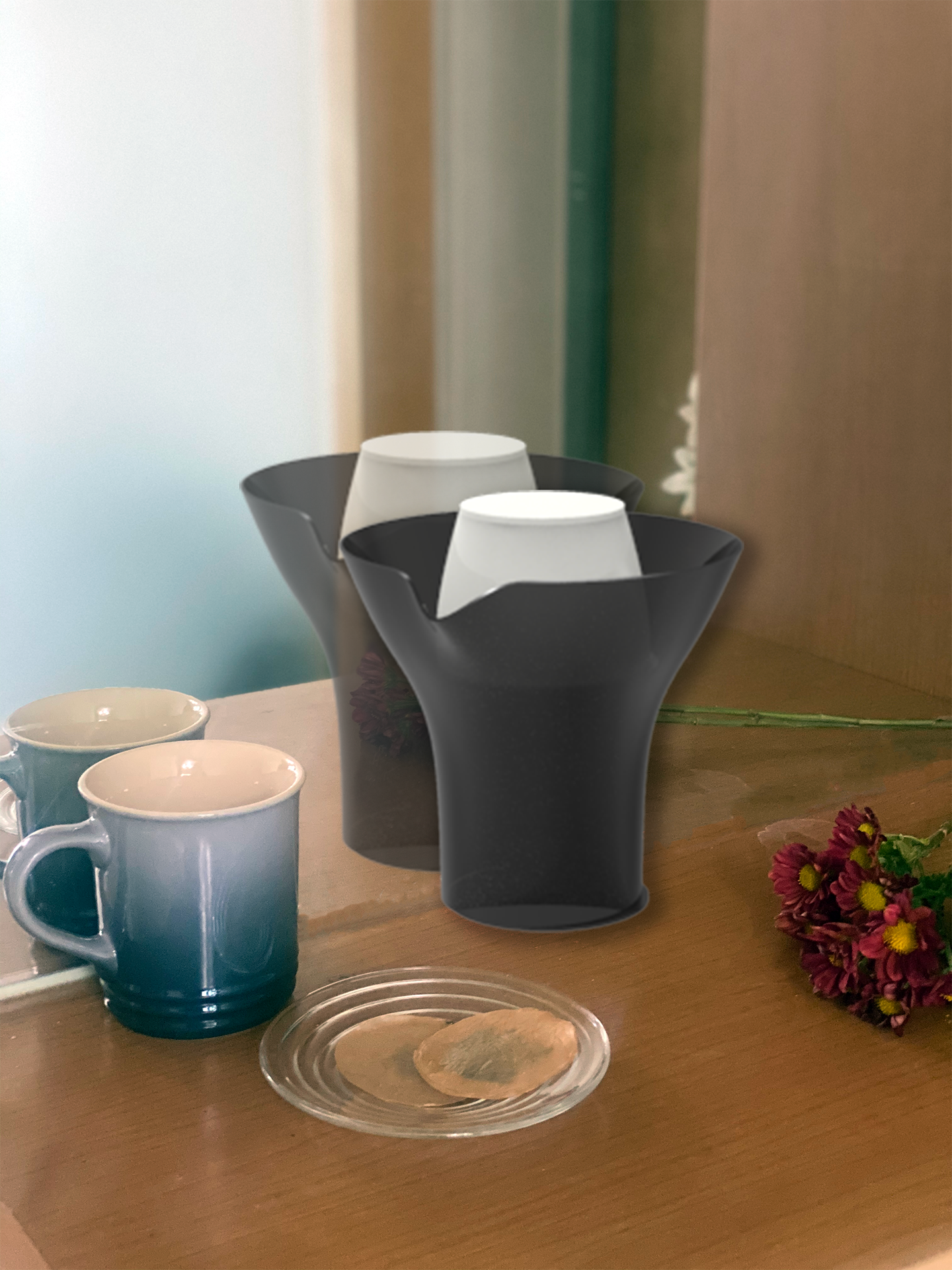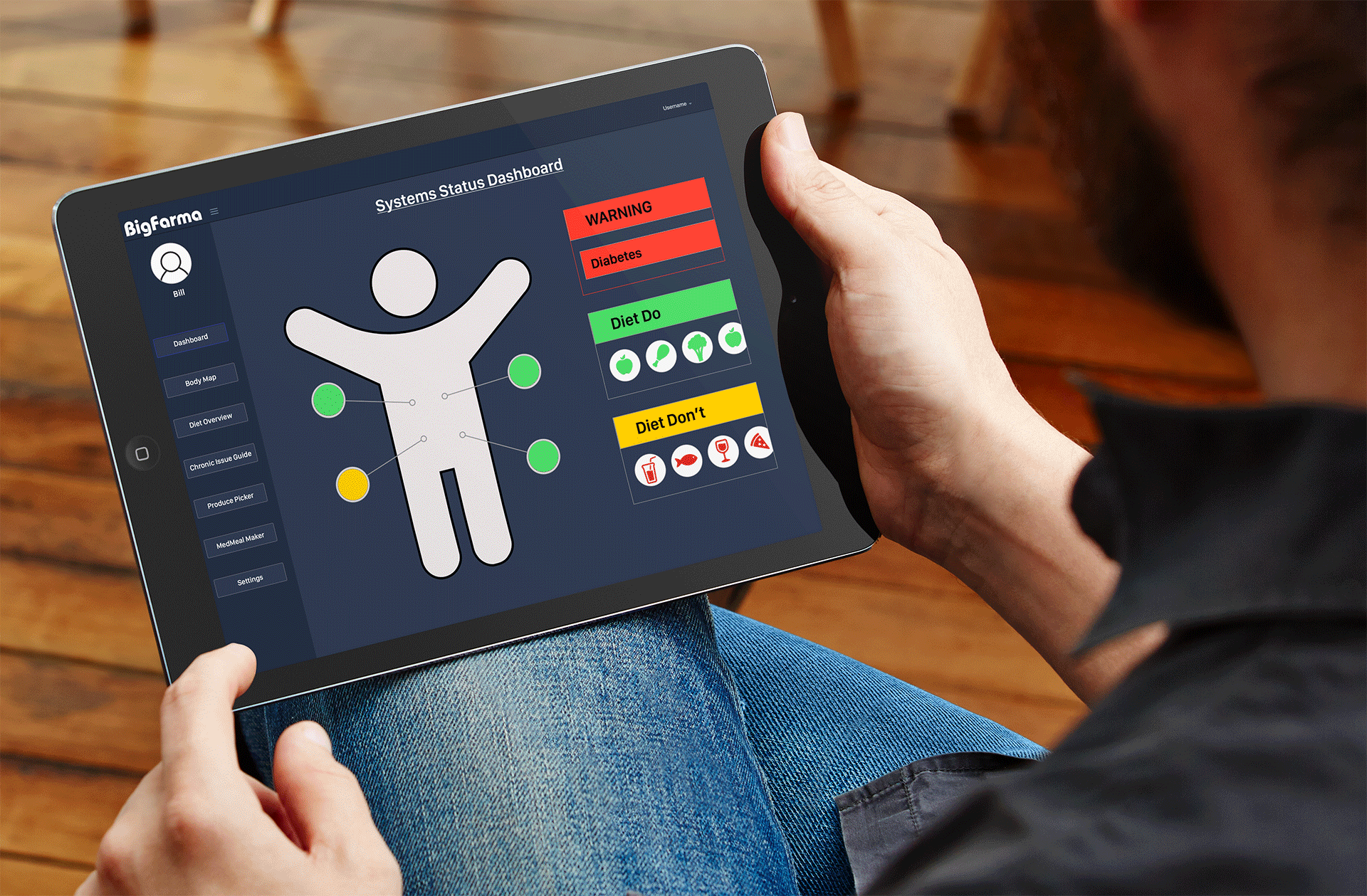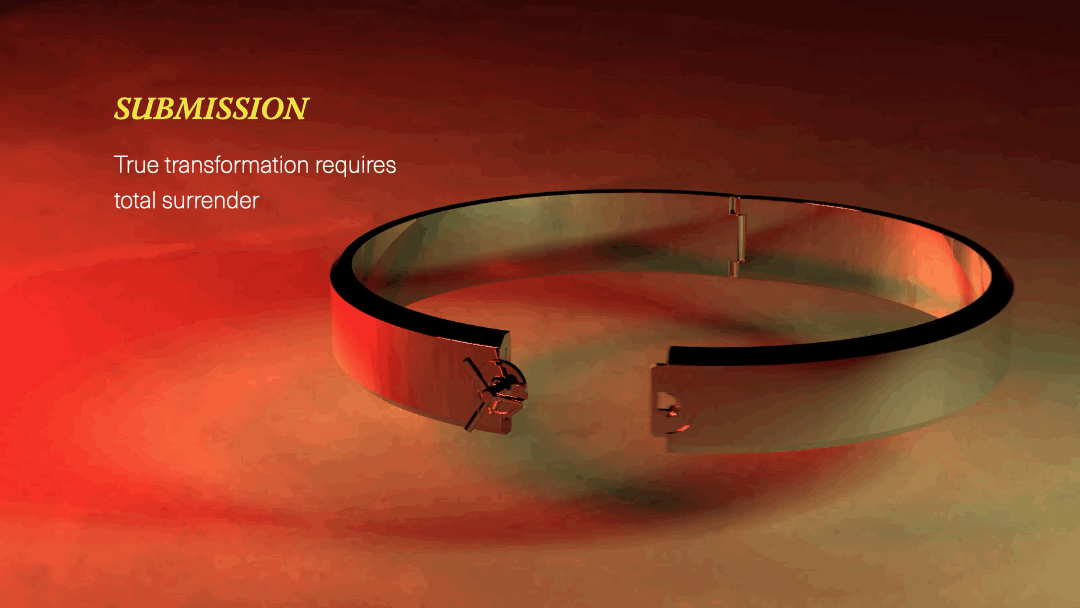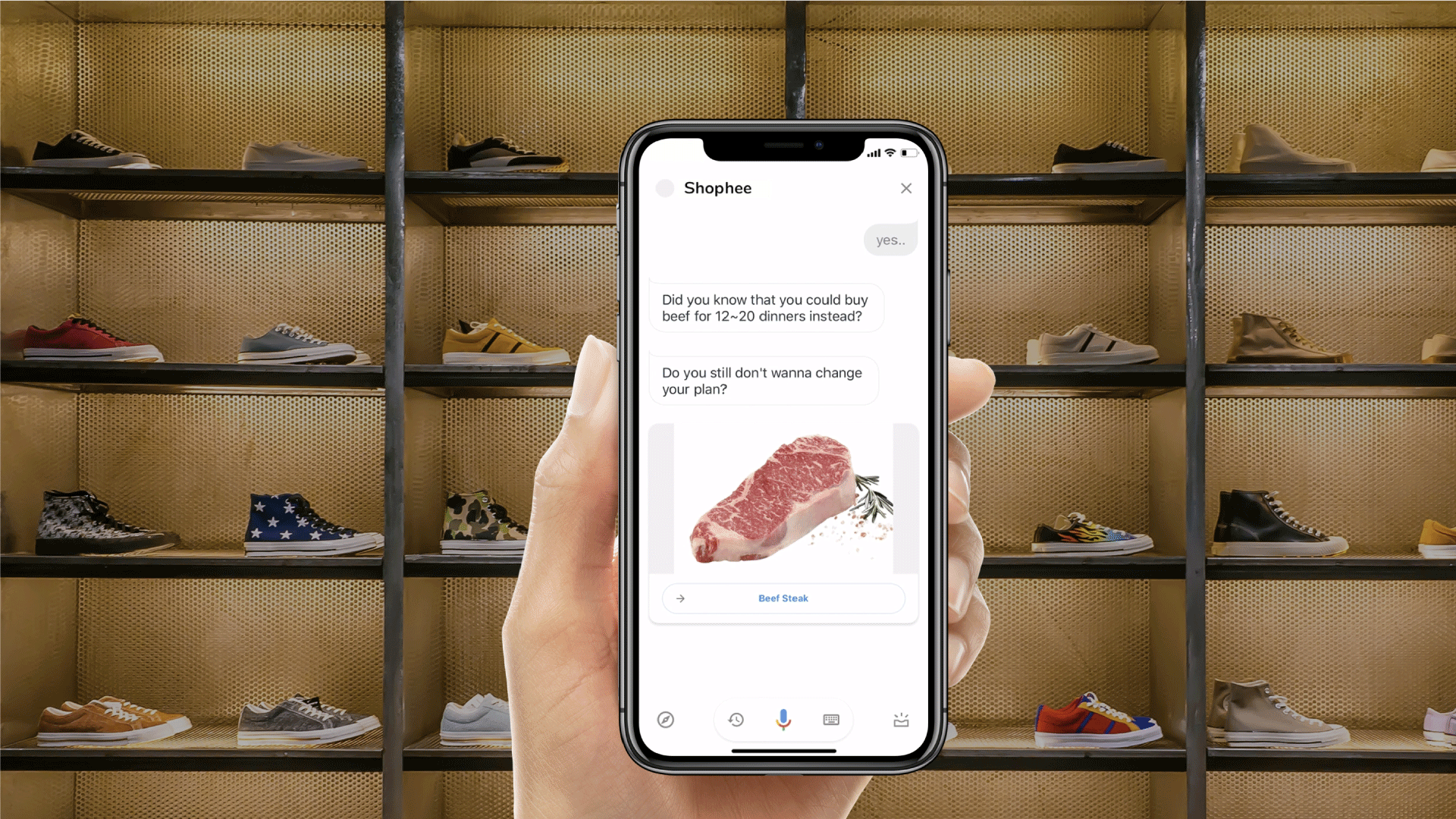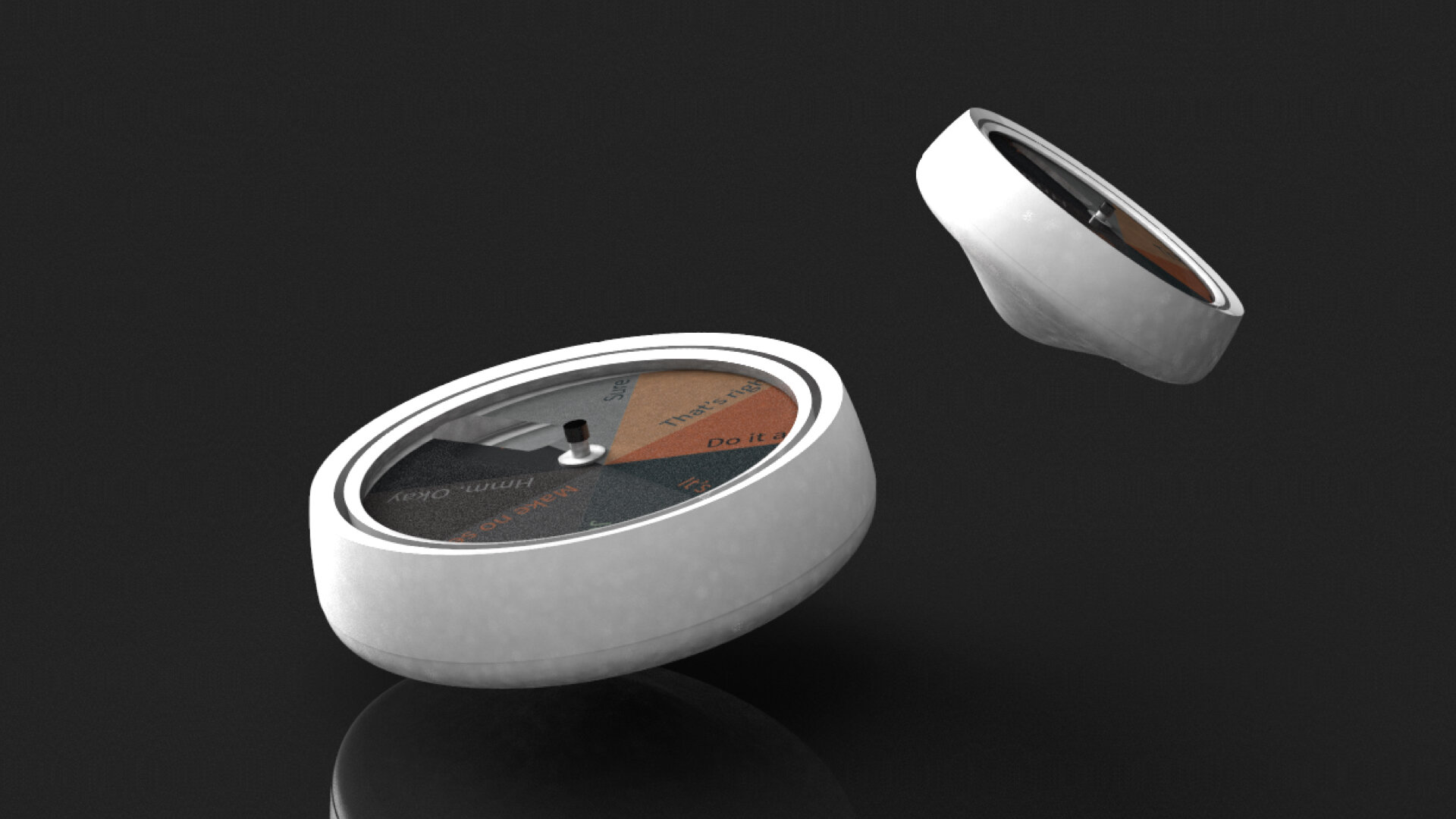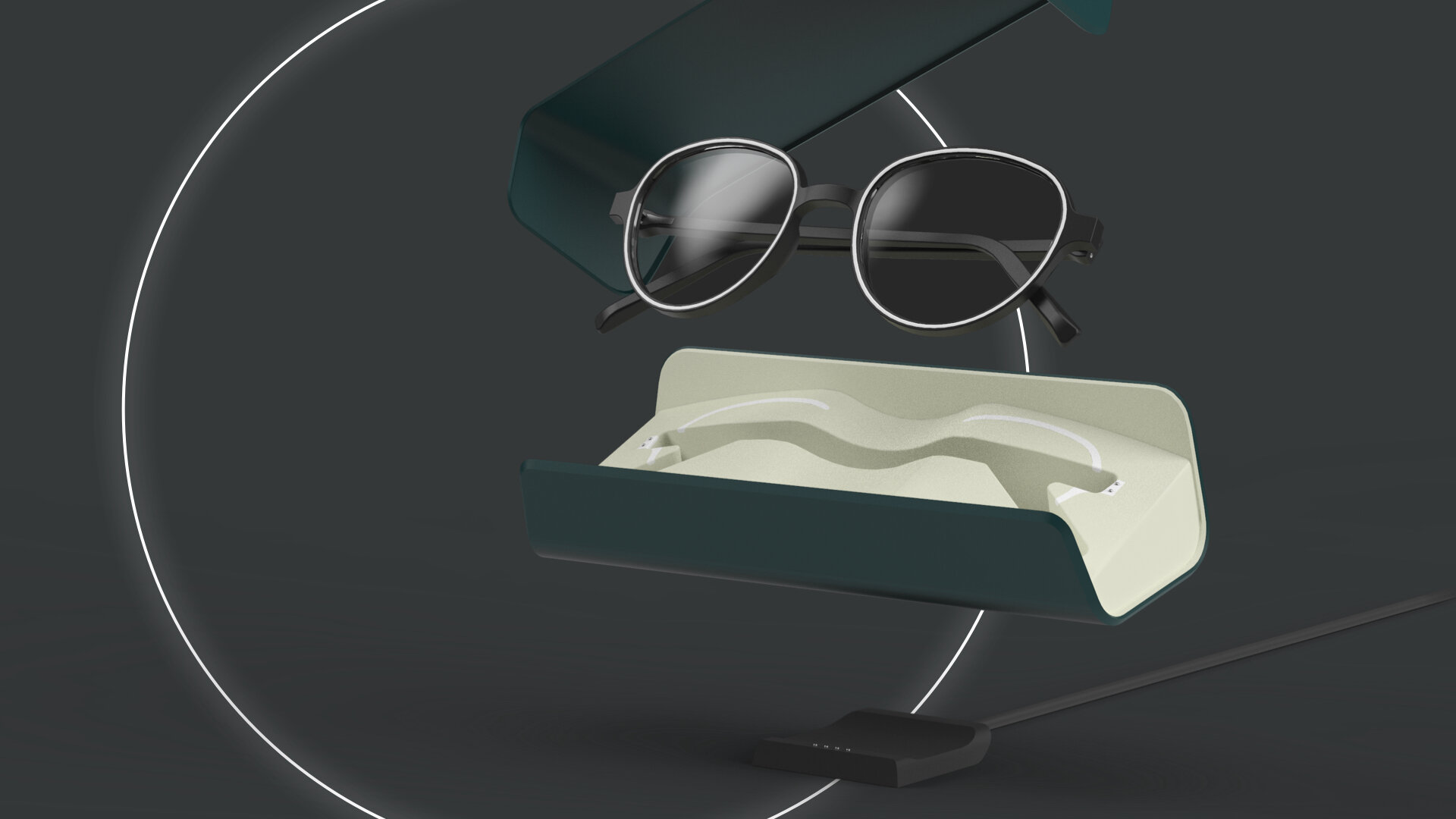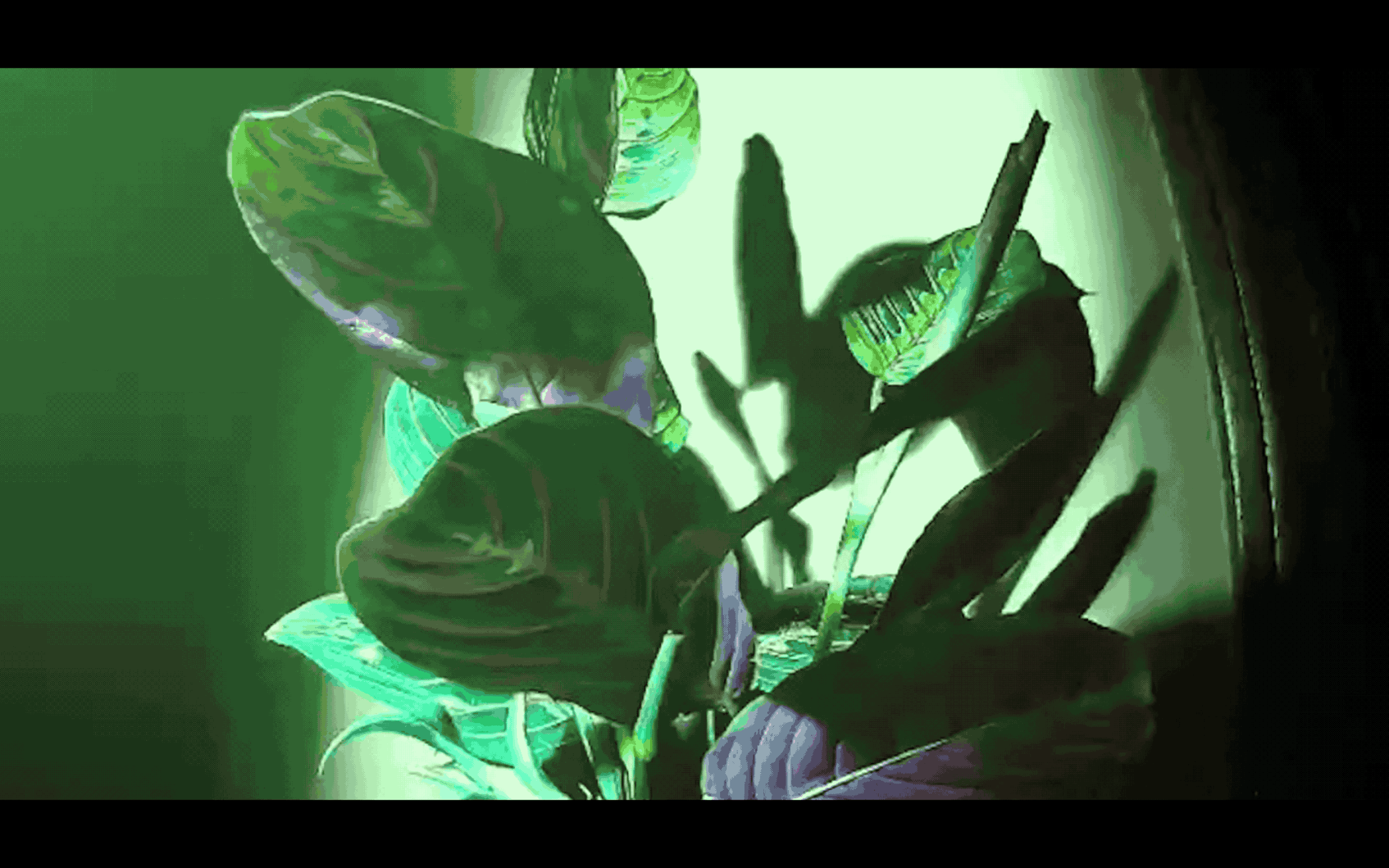Class of 2020 Thesis Projects
At a time when the maternal mortality rate in the US is soaring, Victoria Ayo's thesis, Birth Reborn: Using Design to Address Barriers to Equitable Maternal Care for Black Women, aims to give voice and power back to black women and mothers. Her project explores how design can build more awareness, facilitate the integration of ancestral knowledge, leverage the community, and help eliminate barriers to equitable birth outcomes. Victoria proposes new realities for collective care, bringing the wellbeing of mothers out of isolation and into solidarity.
Stephanie Gamble’s thesis, Grandma’s Teeth: An Exploration of Feminine Voice, Power and Reclamation, is an in-depth examination of the physical, verbal, and emotional enforcement mechanisms of misogyny. Drawing from her own grandmother’s experience with the violence of misogyny, Stephanie designed a provocative body of work that interrogates and makes tangible how the enforcement mechanisms of misogyny are used to control and silence women. This thesis work proposes solutions that invert current power dynamics and challenge cultural values as a way to incite dialogue, ignite anger and impress upon men the substantial toll these experiences have on the daily lives of women.
Seona Joung, as a first-generation immigrant, has often dwelled in the in-between spaces of two geographies and cultures. Her thesis, Home in Progress: Designing Systems of Collective Care for Migrant Communities through Food and Multi-Sensory Experience, questions how design constructs and narrates a new relationship between people and multiple locations and thus serves as an ideal site to interrogate how immigrants relate themselves to the place of origin and the place of residence. Looking at the consequences of what migration does to the family relationship and social structure that influence our identity and health, her design work offers multilocal strategies that leverage sensory experiences, specifically triggered by food preparation and consuming.
Pantea Parsa grew up in Iran, where she encountered a confusing dichotomy: traditional Iranian society taught her that motherhood is the ultimate fulfillment for women, but, at home, she absorbed a different perspective. Her mother was an independent and successful woman who refused to be defined only as a mother and a wife. Pantea strived to be like her mother from a young age and ultimately decided that she doesn't want to become a mother in the future. However, should she become pregnant, she couldn't ignore the harsh reality that she would have to find an illegal back-alley abortion. For her thesis, By Choice: Designing the Abortion Journey, Pantea designed a suite of products that address the abortion journey from different lenses—including access, community, activism, and male accountability.
Through her thesis, Transcending Blue: Adolescent Interconnection & Empathy in the Age of Screens, Catherine Weislogel examines how digital technology usage impacts adolescent social and emotional well-being. While all humans are susceptible to the effects of the omnipresence of technology in their daily lives, children and adolescents, in the critical stages of brain development, are the most vulnerable.
Anna Chau began her journey into online dating when she first arrived in New York City. With the influx of choices of promising people to meet, she was excited to start searching for her perfect match. Soon after, however, she realized the experience was not meeting her expectations. Disappointed by the endless swiping, ghosting, and catfishing, Anna wondered if there was a way to hack the current online dating system and prompted her to begin research on her thesis, Unfilter: Dating in the Digital Age. The lenses that she explored in her thesis are choice, reflection, communication, and confidence to create a more positive dating experience through design.
Growing up in a traditional Chinese family where extroversion is highly regarded, Yufei Wang—a self-identifying introvert—explored how introverts can thrive in an extrovert-centric world. In her thesis, Transversion: Creating Better Spaces for Introverts, she advocates for introverts by designing spaces in which they are not expected to alter their behavior or personality. Unlike existing social spaces, which reward extroverts and are challenging for introverts to navigate, Yufei’s designs support introverts rather than asking them to “rise to the occasion” through design interventions that include reflection, culture sharing, communication, and recharging.
Food sits at the center of human life. It fuels our days and is the root of social activities in restaurants and at family meals. Quite literally, it sustains us. Yet, as a culture, we have lost touch with where our food comes from and how a nutritious, delicious diet can be used to create a healthier, happier, more sustainable future. Bart Haney's thesis, Happy Plants and A Smiling Belly: Investigating the Probable Future of the Human Food System, proposes radical shifts in thinking about the design of public information. He designed provocative solutions to heal ailing bodies, toxic lands, and a broken system in the service of happy plants and even happier bellies. Reimagining the production and distribution of fruits, vegetables, and synthetic proteins brings traditional foodstuffs in line with current and future needs, building absolutely toward a healthier future.
In his thesis, Journey to the West: Integration of Chinese students in America, Hui Zheng set out to face his contemporaries' problems, focusing on the international student community in the United States. Hui argues that the most significant challenges in this journey are finance, information, language, and culture. In his projects involving multiple disciplines, he answered each of the topics with unique design styles. He hopes that the effort to tackle the challenges in his thesis may encourage more designers to join the league against this inequality that exists under the surface.
Yuko Kanai’s thesis, Rich Bitch: Feminine Strategies for Financial Power, rejects the expectation that managing money is a masculine endeavor. Through addressing the emotional facets of money, breaking down the taboos of financial discussions, and presenting alternative models of financial success, her thesis aims to elevate femininity as a source of power rather than a handicap. The proposed strategies work at the level of community, the household, and the individual psyche as leverage points to address why financial illiteracy is more pronounced among women.
Shin Young Park's thesis, Dear Financial Future: Designs for the Younger Generation's Better Financial Decisions, innovates tools to help the younger generation make rational financial decisions to better prepare for their futures. Throughout this project, Shin Young spoke with experts across the fields of economics, cognitive psychology, banking, and education to envision a range of design interventions, from tools to help with smarter spending to a platform that assists young people to better plan for their retirement.
Elvis Yang describes herself as a fundamentally indecisive person. Online, algorithms can optimize and streamline the decision-making process to help her make the best choices. But offline, she often finds herself stagnating, paralyzed with self-doubt even for the most trivial of decisions. “After twenty years, these decisions should not be a big deal for me,” she shared. “How could such a tiny, daily chore cause so much stress and require that much effort?” She was willing to bet she wasn’t alone. In her thesis, Fighting Fatigue: Decision-Making In the Era of Big Data, Elvis utilized design to address the root problems of indecision to help people make daily decisions more comfortably.
In his thesis, AUTOMADA: Privacy and Propriety in the Age of Surveillance Capitalism, Weston Rivell sets out to address the universal problem of internet surveillance. This is part of a more significant issue we are now identifying as 'surveillance capitalism' thanks to author Shoshana Zuboff who states, "Users are not customers, nor are they 'the product.' They are merely free sources of raw material." This raw material is processed into behavioral information used to shape our worldview and manipulate our actions through targeted content and choice architectures.
In their daily lives, many people tend to invest time, energy, and attention towards caring for animals, yet overlook the emotional importance of plants. Although plants provide raw materials for food, clothing, shelter, and medicine, people often do not lavish the same affection that they do on animals. As a recent example, in 2019, when forest fires tore through Australia, and rainforest fires engulfed the Brazilian Amazon, many people were more concerned with how many animals were dying, rather than considering the destruction of plants. If people continue to overlook the crucial role that plants play in their lives and in their societies, many plants will go extinct—and humans, unable to obtain the species that they need, will eventually pay a terrible price. To counteract this, Yue Leng’s thesis aims to help urban millennial dwellers connect to nature before it’s too late. By exploring how design can help people to recognize and understand plant blindness in their daily lives, Yue proposes new biological pathways of communication between humans and nature.



